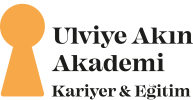Attention Deficit and Concentration Problems

Attention deficit and hyperactivity disorder (ADHD) is a neuropsychiatric disorder that begins in childhood and lasts a lifetime, seriously disrupting daily functionality in many areas such as the academic, social and business lives of affected adults.
Attention Deficit Symptoms
They cannot follow instructions from beginning to end,
They have difficulty paying attention to the work or game they are doing,
They lose the materials they need for work and activities they will do at home or school,
- They seem not to listen when you are talking,
- They miss details,
- They appear disorganized,
- They have difficulty doing tasks that require long-term mental effort and avoid them,
- They are forgetful,
- Their interests easily shift to other directions.
In attention deficit, being able to plan the executive functions of the brain, activating organizational skills and managing the process related to timing are actually the target skills we desire and plan to learn the most. With systematic and scientifically based cognitive and educational programs, very important progress can be made in this process.
CONCENTRATION OR FOCUSING DIFFICULTY; Concentration is the ability to direct attention to the desired or targeted direction. Although the length (duration) of concentration varies from person to person or from subject to subject, it is a skill that every individual has. The concentration skill that a person has changes over time.
Concentration difficulty includes not being able to focus on a subject or a task, not remembering what was learned or experienced, not understanding what was told and being absent-minded. Just like concentration, concentration difficulty is a mental process that changes according to the situation and can increase its intensity from time to time. The cognitive programs we apply targeting concentration duration and skill show important progress.
Concentration
I am very afraid that I will not succeed in the exam. I cannot focus. What should I do?
Do physical exercise when you are tired (You can move your arms, feet and head without making a sound). Instead of constantly checking the clock, look at your watch between sections. Frequently checking the time can lead to anxiety and panic.
My concentration is affected by the slightest thing. How can I keep my concentration high?
“READ AND UNDERSTAND THE QUESTIONS EFFECTIVELY; DON’T BE PREJUDICED”
Read the questions correctly and understand them well, pay attention to what the question stem asks, pay attention to the expressions positive-negative, reachable-unreachable, bringable-unbroughtable and underline the clues and emphasis that will lead you to the solution. Do not interpret the questions within the framework of your own opinion. Each question has its own solution, and with careful reading and reasoning, many questions can be solved easier.
I am fully focused on the questions, and suddenly the thought that I cannot do them or that I will fail comes to my mind. I have difficulty continuing. What should I do?
Exams are aimed at measuring certain skills, knowledge and study habits that you have acquired. Being able to manage this is important for effectively conducting life in the exam and in the future.
If my concentration is high, I get very good results, but if it is low, my success drops a lot. What should I do?
First of all, look at the exam positively. Trust yourself. Don’t see life as a test. Rest your mind and body while moving from one test to another. You can close your eyes, take a deep breath and suggest that this test will pass very well.
If you think or observe that your morale is low, your concentration is scattered and you feel tired during the exam, definitely get information about the scientific programs we apply to increase your concentration.
